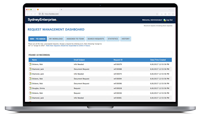“Back to School” Edition: Library Outreach Ideas
Lauren Hays
As autumn approaches, many people shift their focus towards education and new beginnings.
The Labor Day weekend traditionally marks the conclusion of summer and vacation season. This transition period presents an opportune moment to contemplate and launch fresh initiatives, particularly in the realm of outreach.
While you may be doing some of these activities already, I hope the following ideas offer something new:
- Host themed events: Organize workshops, lectures, or seminars related to the library’s specialized collection or focus area. This can attract both regular patrons and new visitors interested in the topic.
- Collaborate with local organizations: Partner with relevant institutions, such as museums, schools, or professional associations, to create joint programs or exhibitions that showcase the library’s resources.
- Utilize social media: Develop a strong online presence by sharing interesting items from the collection, highlighting new acquisitions, and promoting library services across various social media platforms.
- Offer specialized research assistance: Reach out to researchers, students, or professionals in the field to offer tailored research support, demonstrating the unique value of the library’s resources and expertise.
- Create digital content: Develop virtual tours, online exhibitions, or podcasts that highlight the library’s collections and services, making them accessible to a broader audience beyond physical visitors.
- Develop a newsletter: Create a regular digital or print newsletter highlighting new acquisitions, upcoming events, and interesting facts related to the library’s specialty. This can keep patrons engaged and attract new users.
- Offer virtual consultations: Set up online consultation services where patrons can book time with librarians for specialized research assistance, making expertise more accessible to remote users.
- Advertise subject-specific guides: Using social media, a newsletter, or other method, promote research guides on topics relevant to the library’s focus area, illuminating the depth of resources available.
- Participate in community events: Represent the library at local events with informational booths or presentations, increasing visibility and networking opportunities.
- Implement a “Library Ambassador” program: Recruit enthusiastic patrons or local experts to serve as ambassadors, promoting the library’s resources and services within their professional networks.
- Host a “Behind the Scenes” tour: Organize exclusive tours displaying rare or unique items in the collection, conservation processes, or specialized cataloging methods. This can give patrons a deeper appreciation for the library’s work and resources.
- Develop a mentorship program: Connect experienced professionals in the library’s specialty area with students or early-career individuals, using the library as a hub for knowledge exchange and networking.
Here are five more ideas for special librarians engaging in outreach:
- Organize a “Special Collections Showcase”: Host an annual event where the library displays its most intriguing or valuable items, inviting experts to give talks about their significance. This can attract both regular patrons and new visitors interested in the library’s specialty.
- Develop a podcast series: Create a podcast focusing on topics related to the library’s specialty, featuring interviews with experts, discussions about unique items in the collection, or explorations of current trends in the field.
- Implement a “Resource of the Month” campaign: Highlight a different resource each month through social media, in-library displays, and targeted emails to relevant user groups, demonstrating the breadth and depth of the library’s offerings.
- Create a citizen science project: If applicable to the library’s focus, develop a project that allows community members to contribute to research or data collection, fostering engagement and demonstrating the practical applications of the library’s resources.
- Establish a “Special Library Book Club”: Form a book club that focuses on literature related to the library’s specialty, encouraging discussions and deeper exploration of the subject matter while building a community around the library’s focus area.
*Claude.AI was used to brainstorm ideas.
Lauren Hays
Dr. Lauren Hays is an Assistant Professor of Instructional Technology at the University of Central Missouri, and a frequent presenter and interviewer on topics related to libraries and librarianship. Please read Lauren’s other posts relevant to special librarians. Learn about Lucidea’s powerful integrated library systems, SydneyDigital, and GeniePlus, used daily by innovative special librarians in libraries of all types, sizes and budgets.
**Disclaimer: Any in-line promotional text does not imply Lucidea product endorsement by the author of this post.
Never miss another post. Subscribe today!
Similar Posts
Texas Archive of the Moving Image: Interview with the Digital Archivist
I recently interviewed Grace Muñoz about her work at the Texas Archive of the Moving Image. Her work on improving the discoverability of the multimedia collection is fascinating.
Interview with Author and Librarian Dr. Jae Rossman on Special Collections and Archives
Dr. Jae Rossman wrote Access to Special Collections and Archives, available now from Rowman and Littlefield. The book is an excellent resource for special librarians who work with special collections and archival materials.
Interview with the Author: Dr. Patricia Franks on Records and Information Management
Dr. Patricia Franks is the author of Records and Information Management, now with an upcoming third edition to be published by ALA Neal-Shuman in the spring of 2025. My interview with her follows.
Are There Drawbacks to Using GenAI for Research?
Researchers must take responsibility for understanding how GenAI works and closely review literature search results before relying on them. Let’s take a look at three major drawbacks for researchers and special librarians to consider when leveraging or recommending GenAI platforms.





Leave a Comment
Comments are reviewed and must adhere to our comments policy.
0 Comments